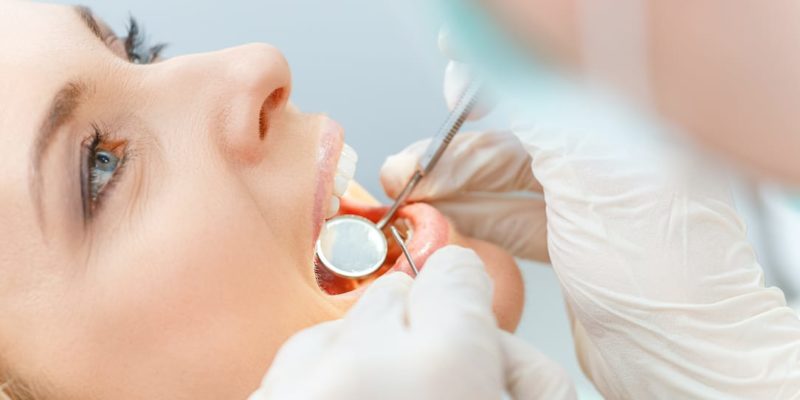Options for Pain Relief After Dental Care

If you’re scared to go to the dentist because of the pain you might feel, don’t be! We have many options to help ease your discomfort. After a dental procedure you have options to help relieve any pain that you’re feeling. It’s not uncommon to have some pain and swelling after a dental procedure. If you want to have a smooth recovery after surgery, read up on these tips on pain relief before you come in. These suggestions will help prevent or treat pain before it gets uncontrollable once you’re home.
Pain Relief
People that have sensitive mouths often will feel acute pain with their treatments. Some of the procedures patients could feel pain in are:
- Root canals where a tooth that is decaying can be saved
- Cavity fillings where the dentist will remove decay within a tooth and fill it in
- Dental implants which are used to replace tooth roots by bonding with your bone
- Crowns that are prosthetic restorations to repair damaged teeth to look normal again
- Tooth extractions to remove decayed teeth or wisdom teeth
Thankfully, in modern healthcare and dentistry, there are plenty of options to provide you relief from the pain. The most common are nonopioid analgesics and opioids.
Non-opioid Analgesics
These pain relievers involve over-the-counter medications like:
- NSAIDs: ibuprofen, naproxen, celecoxib, aspirin. These work by reducing inflammation at the source.
- Acetaminophen: this works by blocking the transmission of pain signaling within the central nervous system.
Since NSAIDs and acetaminophen work differently within the body, many patients find that taking them in combination with one another can be even more effective in reducing mild-to-moderate pain, according to the American Dental Association. This is because the pain will be blocked at both ends of the nociceptive pathway. Your dentist will be able to go over how often you should take each before your procedure.
Side Effects of Non-opioid Analgesics
Non-opioids can have some side effects if taken for too long. When NSAIDs are used for long periods of time, it can cause gastrointestinal (GI) upset which brings along nausea, heartburn, abdominal pain, and even bleeding.
Acetaminophen can cause liver toxicity, which is why it’s important to limit alcoholic beverages when taking it. It can also cause headache, and GI upset.
Opioids
Sometimes opioids are prescribed to treat pain after a dental procedure. The opioid drugs most often prescribed are oxycodone, hydrocodone, and codeine. These medicines alter the body’s nervous system response to pain.
Side Effects of Opioids
Opioids come with much more severe side effects than their non-opioid counterparts. The most common side effects of opioids are:
- Sedation
- Dizziness
- Nausea and vomiting
- Sweating
- Constipation
- Respiratory depression
In addition to those risks, opioids can be addictive. It is easy for patients to abuse opioids, which is why taking them just as the dentist prescribes is important. In 2018, more than 67,000 people died from drug overdoses. Of that, 70% involved a prescription.
Anesthetics
In dentistry, the use of local anesthesia is also common. Local anesthesia helps to numb the mouth where the procedure is taking place. In addition with sedation sometimes, this can help relax the patient during the procedure. Local anesthesia doesn’t last for long periods of time, which is why it’s primarily used for patients who are having minor procedures. When local anesthesia is used, patients can typically go home on the same day. General anesthetics cause you to lose consciousness, and aren’t as commonly used in dentistry as local.
Local anesthetics stop pain by preventing nerves from signaling signs of pain to your brain. When it’s applied, you won’t be able to feel any pain but you will be able to feel the dentist during the procedure.
Side Effects of Anesthetics
The side effects that accompany anesthetics are temporary, and can include:
- Dizziness
- Headaches
- Blurred vision
- Twitching
- Prolonged numbness or tingling
Most everyone will need a dental procedure at some point in their lives. If you find that you need a cleaning, fillers, implants, or any other procedure, we want to make you as comfortable as possible. Using these methods above and partnering them with other relaxation techniques, you can rest assured knowing that you’re in the best possible hands.
Make an Appointment with Dr. Ania
Dr. Ania will go over all of your questions and concerns about pain relief after a dental procedure. Dr. Ania’s expertise and passion makes her committed to your well-being. Along with medication if needed, Dr. Ania also offers relaxation therapy, personal music, and a selection of movies to make sure you are as comfortable as possible. If you’re ready to make an appointment, contact us!


